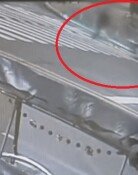[Opinion] North Koreas Continuing Intelligence Campaign
[Opinion] North Koreas Continuing Intelligence Campaign
Posted November. 26, 2005 07:19,
The National Intelligence Service (NIS) recently reported to the National Assembly that North Korea sent up to 670 secret dispatches to the South over the last four years (from 2001 to this past August). But this number only accounts for the dispatches that were discovered, meaning the actual number is likely to be much higher.
Last year, a representative of the National Assembly Intelligence Committee said, There were around 80,000 messages that we assume to be North Korean orders to spies and pro-North underground groups.
North Koreas dual policy of crying out for mutual assistance while sending secret messages behind our backs as part of a program of invasion, propaganda, and instigation for communist reunification is reprehensible.
The NIS announced that 13 spies have been arrested during this period. This implies that an average of three spies have been caught each year, and considering the fact that the North has not changed its strategies toward the South, I wonder how many Korean citizens will believe that the NIS has done a good job. Have they not been able to catch them, or is it that they are not looking for them?
When asked whether he wanted to visit Pyongyang, Kim Young-seung (70), the non-converted long-term prisoner who, as a partisan during the Korean War, killed five South Korean soldiers, answered, No. There should be some who stay in South Korea and silently do their work. What could it be that he has to do here? Could orders from the North go to people such as him? In his case, the answer is likely no, because Kim is on probation by the government, but what about the other pro-North cooperators living in the South Korean society?
In Germany following its reunification, the Federal Intelligence Service (BND) exposed around 20,000 West German irregular informers who has cooperated with East German powers before reunification, through documents from Stasi, the intelligence service in former East Germany. Irregular informers are those who exerted influence on West Germanys policies toward East Germany from various areas in society without exposing their identities. In other words, they were irregular spies. They ultimately received the judgment of history. I am afraid we might be faced with the same situation; after our reunification some day, there may come a time when the names of those who received orders from the North will be exposed through documents from Pyongyang archives.
Song Mun-hong, Editorial Writer, songmh@donga.com







